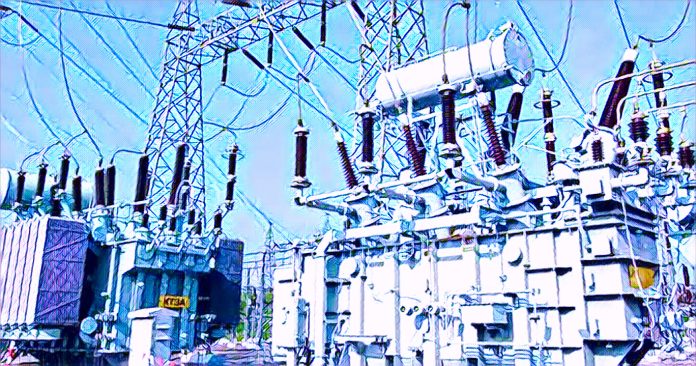KEY POINTS
- Nigeria’s power grid struggles with inefficiencies, outdated infrastructure, and frequent failures, hindering consistent electricity supply.
- Reform efforts such as privatization and metering programs have shown limited success due to poor investments and bureaucratic challenges.
- Sustainable solutions include grid modernization, decentralized power systems, and increasing renewable energy integration in the energy mix.
Nigeria, the most populous country in Africa, has faced persistent challenges with an inadequate and inconsistent power supply, hindering its pursuit of economic growth and development.
The World Bank estimates that power outages in Nigeria incur an economic cost of approximately $28 billion, which averages to about 2 percent of its GDP.
Nigeria has one of the highest rates of energy poverty in the world and is unable to meet the energy demand of the population
At the core of the issue is the nation’s power grid, which suffers from inefficiencies, insufficient capacity, and regular failures.
Even with reform initiatives, attaining a sustainable and resilient power system continues to be a major challenge.
Challenges of Nigeria’s national grid:
Inadequate generation capacity
Even with an installed generation capacity of around 13,000 MW, Nigeria’s functional capacity seldom surpasses 4,000 MW.
This difference results from various factors. Old power plants, many constructed years ago, function far below their designed efficiency levels because of insufficient maintenance and improvements.
Gas supply limitations worsen the situation, given that gas-powered plants generate more than 80 percent of Nigeria’s electricity.
Regular pipeline sabotage and insufficient funding for gas infrastructure interrupt the supply chain, resulting in energy shortages.
Regular grid failures
The instability of the national grid is highlighted by its regular failures, with more than 10 instances of partial or complete collapses noted in 2023 and 2024.
These failures are mainly caused by the grid functioning beyond its intended limits, along with insufficient modern monitoring systems.
Common culprits include overloaded transmission lines and outdated transformers. Inadequate maintenance practices further compromise the system, making it susceptible to unexpected increases in demand or supply interruptions.
Transmission bottlenecks
The Transmission Company of Nigeria (TCN) faces challenges in efficiently transporting power from generation companies (GenCos) to distribution companies (DisCos) (Transmission Company of Nigeria, 2022).
The network’s restricted coverage results in numerous rural and semi-urban regions being disconnected, sustaining energy disparity.
Significant transmission losses, estimated at 32 percent according to the World Bank, further decrease the electricity accessible to end-users.
Reform efforts: Progress and limitations:
Privatization of the power sector
The 2013 privatization of Nigeria’s electricity sector represented a major reform initiative designed to improve efficiency and service provision.
Although generation and distribution assets were handed over to private investors, the transmission network stayed under government control through the Transmission Company of Nigeria (TCN).
Despite considerable expectations, privatization has encountered difficulties, such as insufficient capital investments by operators and subpar operational management.
Numerous distribution companies (DisCos) struggle with technical inefficiencies, customer discontent, and liquidity issues arising from inadequate tariff recovery and extensive electricity theft.
Lacking strong enforcement of performance agreements and significant reinvestment in the system, the privatization effort has not yet achieved the expected transformative change.
National mass metering program (NMMP)
Initiated in 2021, the NMMP aims to tackle the widespread problem of electricity theft and revenue loss resulting from estimated billing methods.
The initiative seeks to enhance accurate billing and boost consumer trust by offering free prepaid meters to households.
More than 53 percent of Nigerians are still without meters, with 6.16 million out of 13.34 million clients were being metered as of September 2024 (The Electricity Hub, 2025).
Bureaucratic obstacles, restricted production capability, and logistical issues have slowed the program’s growth.
Speeding up meter deployment and incorporating advanced metering technologies will be crucial for bridging the metering gap, improving revenue generation, and fostering trust between DisCos and customers.
Renewable energy initiatives
Renewable energy has surfaced as a practical answer to Nigeria’s energy challenges, as the government has initiated programs such as the Solar Power Naija Initiative and the Nigeria Electrification Project (NEP) to encourage clean energy usage.
These initiatives seek to implement solar home systems and mini-grids, especially in off-grid rural regions, to enhance electricity availability.
Although advancements have occurred, Nigeria’s renewable energy industry continues to fall behind because of insufficient funding, regulatory obstacles, and restricted participation from the private sector.
Enhancing renewable energy policies, providing financial incentives, and promoting collaborations with global investors will be essential for meeting the nation’s renewable energy objectives and decreasing reliance on fossil fuels.
Pathways to sustainability:
Grid Modernization
Upgrading Nigeria’s transmission and distribution systems is essential to improving the grid’s reliability and ability.
Investing in smart grid technologies such as automated monitoring systems, sophisticated metering, and energy storage options—can decrease technical losses and enhance system stability.
These enhancements will enable operators to identify and resolve issues immediately, reducing downtime and enhancing productivity.
Decentralized power generation
Decentralized energy systems, including mini-grids, solar farms, and independent power projects (IPPs), provide effective solutions for enhancing electricity access in underserved regions.
These systems alleviate the strain on the national grid and deliver dependable, localized energy to rural areas.
With more than 80 million Nigerians without access to electricity, decentralized solutions are essential for attaining universal electrification.
Integration of renewable energy
Increasing the proportion of renewable energy in Nigeria’s energy mix is crucial for establishing a sustainable power system.
Hydropower, solar, and wind energy initiatives hold great promise, considering Nigeria’s rich natural resources.
Regulations that promote net metering, feed-in tariffs, and extended power purchase agreements (PPAs) can draw private investment into renewable energy.



